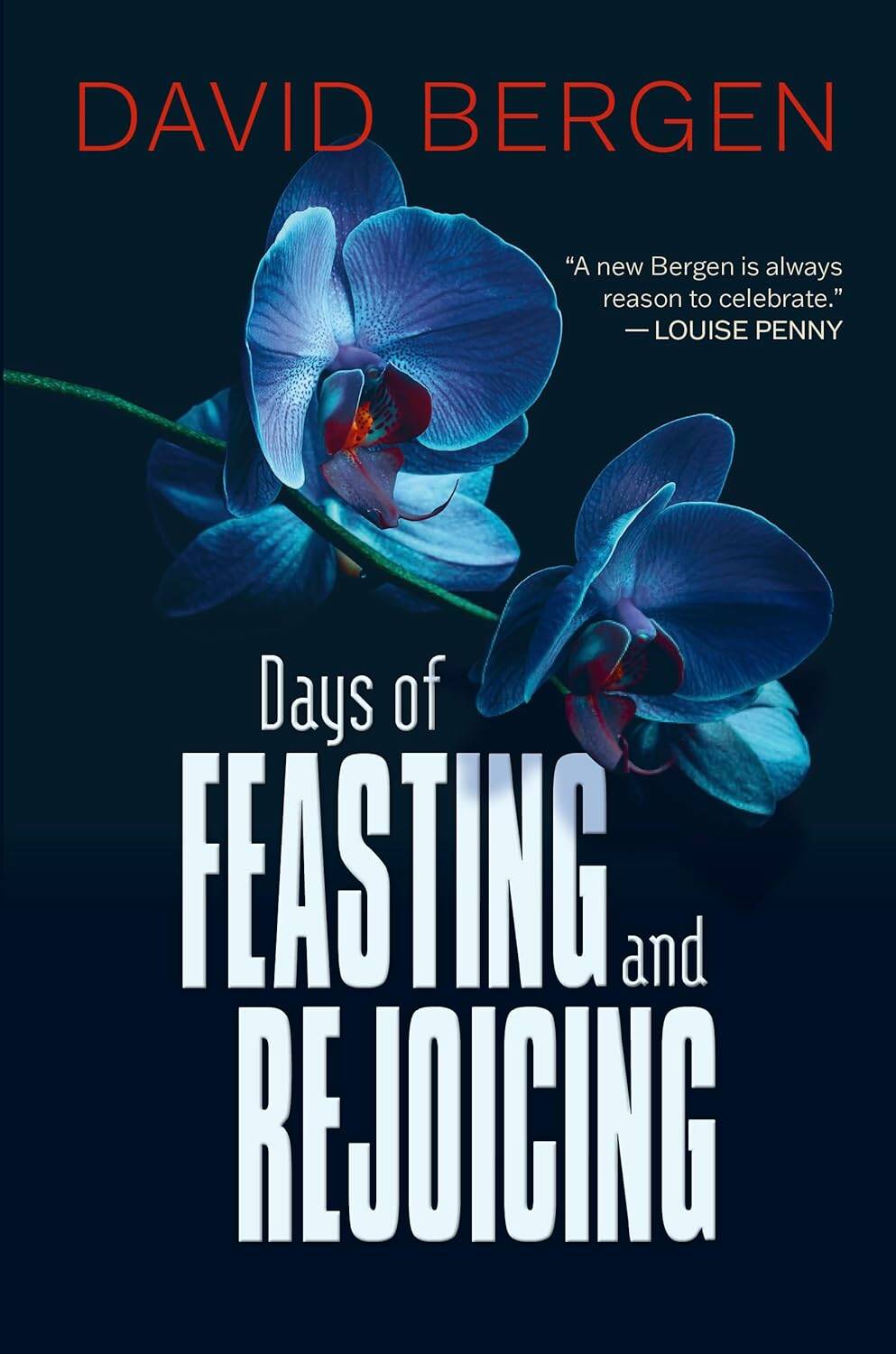Identity theft
Protagonist in taut new thriller is living on the razor’s edge
Advertisement
Read this article for free:
or
Already have an account? Log in here »
To continue reading, please subscribe:
Monthly Digital Subscription
$0 for the first 4 weeks*
- Enjoy unlimited reading on winnipegfreepress.com
- Read the E-Edition, our digital replica newspaper
- Access News Break, our award-winning app
- Play interactive puzzles
*No charge for 4 weeks then price increases to the regular rate of $19.95 plus GST every four weeks. Offer available to new and qualified returning subscribers only. Cancel any time.
Monthly Digital Subscription
$4.99/week*
- Enjoy unlimited reading on winnipegfreepress.com
- Read the E-Edition, our digital replica newspaper
- Access News Break, our award-winning app
- Play interactive puzzles
*Billed as $19.95 plus GST every four weeks. Cancel any time.
To continue reading, please subscribe:
Add Free Press access to your Brandon Sun subscription for only an additional
$1 for the first 4 weeks*
*Your next subscription payment will increase by $1.00 and you will be charged $16.99 plus GST for four weeks. After four weeks, your payment will increase to $23.99 plus GST every four weeks.
Read unlimited articles for free today:
or
Already have an account? Log in here »
Like most published books, most of David Bergen’s previous novels have come adorned with blurbs espousing the author’s writerly prowess.
The award-winning Winnipeg author’s latest novel, his 12th, is no different — but in the case of Days of Feasting and Rejoicing, the blurb comes from none other than fêted Quebec crime-fiction writer Louise Penny. No surprise, then, that in his latest Bergen offers his taut take on the literary thriller.
The 68-year-old Bergen launches Days of Feasting and Rejoicing tonight at 7 p.m. at McNally Robinson Booksellers’ Grant Park location, where the author will be joined in conversation by fellow novelist Joan Thomas as part of Thin Air, the annual writer’s festival presented by Plume Winnipeg.
MIKAELA MACKENZIE / FREE PRESS David Bergen’s new literary thriller, Days of Feasting and Rejoicing, is a psychological study about reinvention.
Feasting follows Esther Maile, an American woman in Thailand with her Canadian friend Christine Case. An incident early in the novel sees Christine drown, with Esther not exactly innocent in the way things play out. After Christine’s death, Esther begins taking over her late friend’s life, all the while making increasingly erratic decisions, while Christine’s friends and family — and local police — begin to suspect something is amiss.
As the circle tightens around Esther, now mainly living as Christine, she makes rash choices, getting in all sorts of trouble, and is nearly nabbed numerous times by authorities before the book’s unsettling but highly satisfying final act.
While Bergen’s latest comes on the heels of his 2023 novel Away from the Dead — a book set in early 20th-century Ukraine — Feasting’s origins reach back to earlier in the author’s critically acclaimed writing career.
“I wrote this book 15 years ago — I tried to sell it, and there was no interest in this particular kind of story at that time,” Bergen says. “Maybe the zeitgeist has changed in how people approach this kind of a story.”
Feasting was published on Sept. 2 by Goose Lane Editions, who also published Bergen’s novel Away from the Dead and 2021’s Out of Mind.
Feasting takes a sharp turn away from the world of Bergen’s last novel.
“The style is very different. I still love Away From the Dead, but some of my ideal readers might think, ‘Oh, Bergen, what have you done? You’ve gone off, veered off in a completely different direction,’” he says, laughing. “I think that’s OK. I’ve never wanted to repeat myself, and I’ve certainly not done that with this novel.”
In revisiting Feasting, Bergen trimmed the first 35 pages from the initial draft, which dealt with Esther’s past, instead dropping the reader directly into the action.
“I reckoned the back story maybe wasn’t necessary for this particular kind of book,” he says. “I didn’t want to reveal motivation in Esther’s choices — I just wanted to watch her.”
What didn’t change since those first drafts were the novel’s ending and its title, the latter of which is biblical in origin.
“It comes out of the (Old Testament) Book of Esther, when (the Jews) kill 15,000 of their enemies and then have days of feasting and rejoicing. The irony, of course, is very important — I knew immediately it should be the title.”
The book’s title also tips the hat to the many evocative descriptions of food that appear throughout the novel. Bergen has lived in Thailand and visited multiple times, and the smells, spices and appearance of the dishes in Feasting are evocative and plentiful.
“We cook Thai — we learned how to cook when we lived there, and we’ve carried that through to our lives here,” he explains. “Flavour is very important, but so is presentation in Thai food. And in tandem with the presentation of food is the presentation of Esther — how does she present herself to others?”
Despite her shifty nature, Bergen is hesitant to call Esther’s character unreliable.
“I prefer malleability to unreliability… we’re all unreliable narrators of our own lives. In fiction, that’s even more so.”
“I prefer malleability to unreliability — we’re all unreliable narrators of our own lives. In fiction, that’s even more so,” he says. “The decisions she makes are completely by chance. It’s all contingency… I’m not sure she’s terribly conscious of the choices she’s making other than in the moment.”
These choices contribute to Esther’s almost being nabbed or discovered numerous times — sometimes seemingly on purpose.
“I think she wants to pull off something. She wants to trick people, she wants to see if she can succeed at duping people into believing that she’s not actually Esther,” Bergen says. “There’s a push and pull, times where she almost wants to get caught… she both wants to be noticed and not be noticed. She wants attention, but doesn’t want the attention. Her life appears to be one of secrets.”
Bergen found the notion of an intimate look at a malleable, troubled character with secrets such as Esther’s to be appealing.
“It’s really a psychological study. I have some empathy for her and if I can convince the reader to to go along with Esther and almost cheer her on — not in her violence, but in her attempt to escape detection — then I think I’ve achieved something in making the reader sympathize with who this kind of person is.”
In the end, Feasting was, for Bergen, a chance to explore a character’s quest to become someone else.
“I’m not sure all of us go through that, but we imagine other lives. And Esther actually chooses another life and chooses another identity, and she gets to put on that identity and then find out what happens,” he says. “I loved following Esther through her world.”
books@freepress.mb.ca
@bensigurdson

Ben Sigurdson
Literary editor, drinks writer
Ben Sigurdson is the Free Press‘s literary editor and drinks writer. He graduated with a master of arts degree in English from the University of Manitoba in 2005, the same year he began writing Uncorked, the weekly Free Press drinks column. He joined the Free Press full time in 2013 as a copy editor before being appointed literary editor in 2014. Read more about Ben.
In addition to providing opinions and analysis on wine and drinks, Ben oversees a team of freelance book reviewers and produces content for the arts and life section, all of which is reviewed by the Free Press’s editing team before being posted online or published in print. It’s part of the Free Press‘s tradition, since 1872, of producing reliable independent journalism. Read more about Free Press’s history and mandate, and learn how our newsroom operates.
Our newsroom depends on a growing audience of readers to power our journalism. If you are not a paid reader, please consider becoming a subscriber.
Our newsroom depends on its audience of readers to power our journalism. Thank you for your support.


